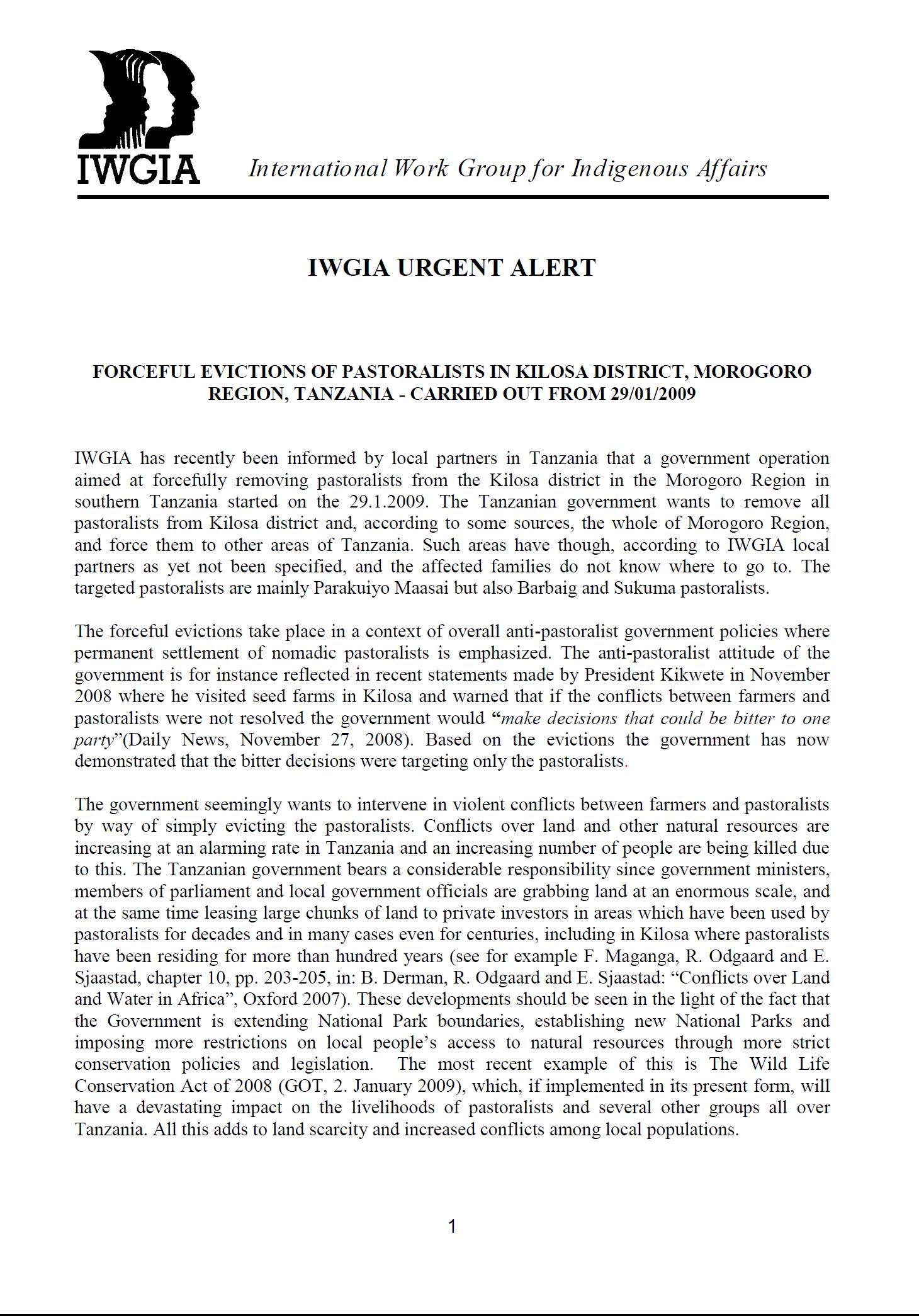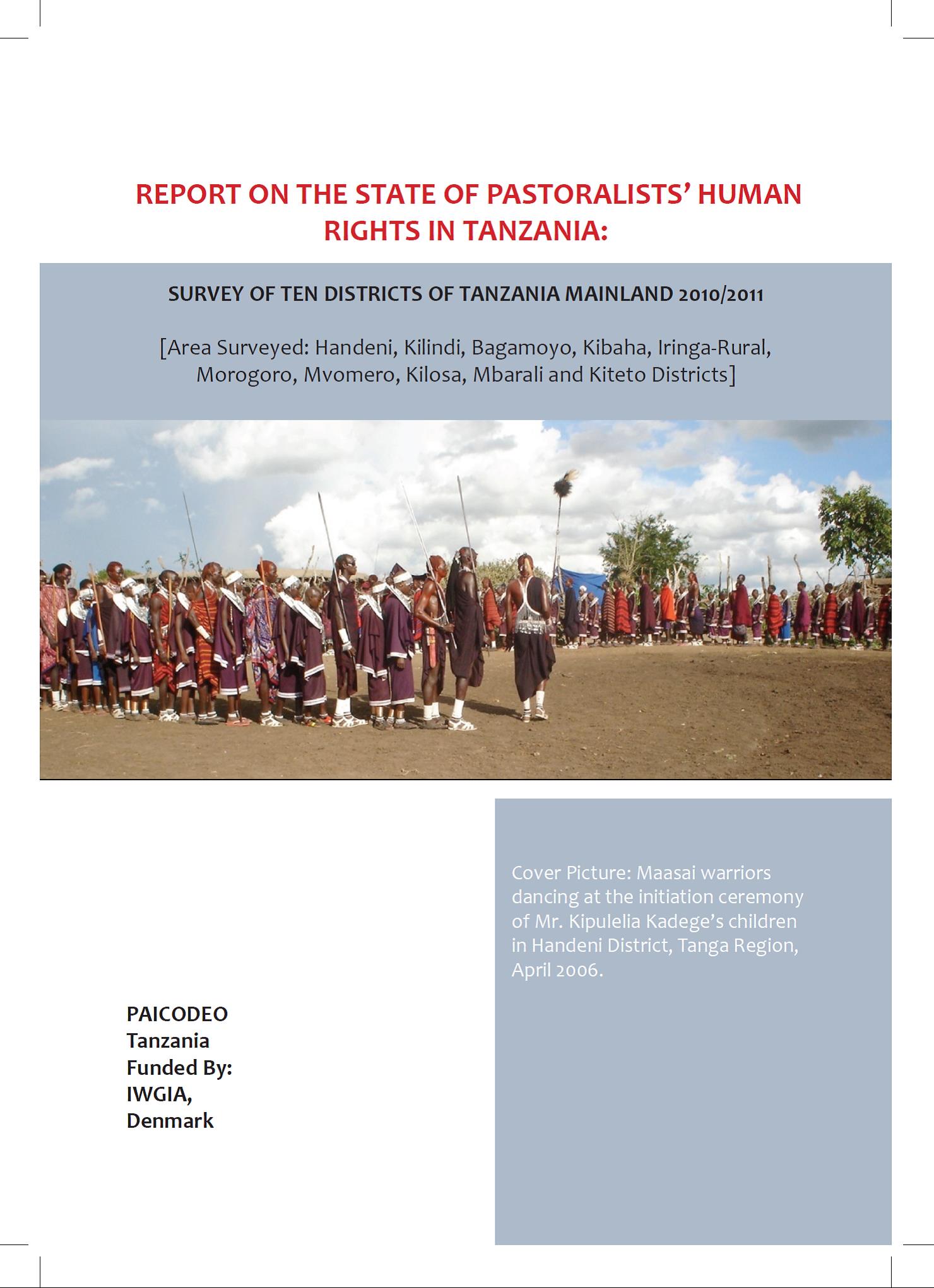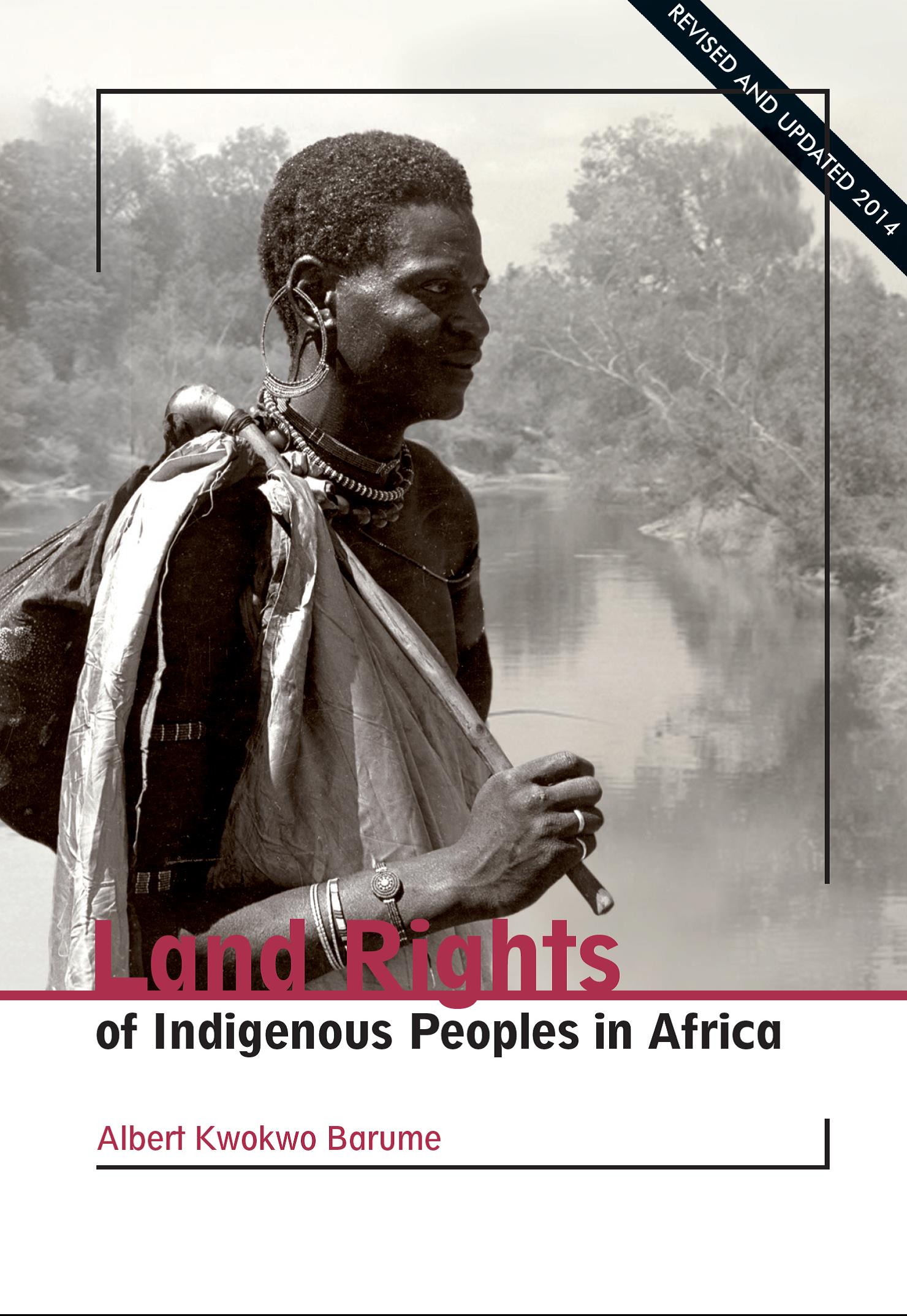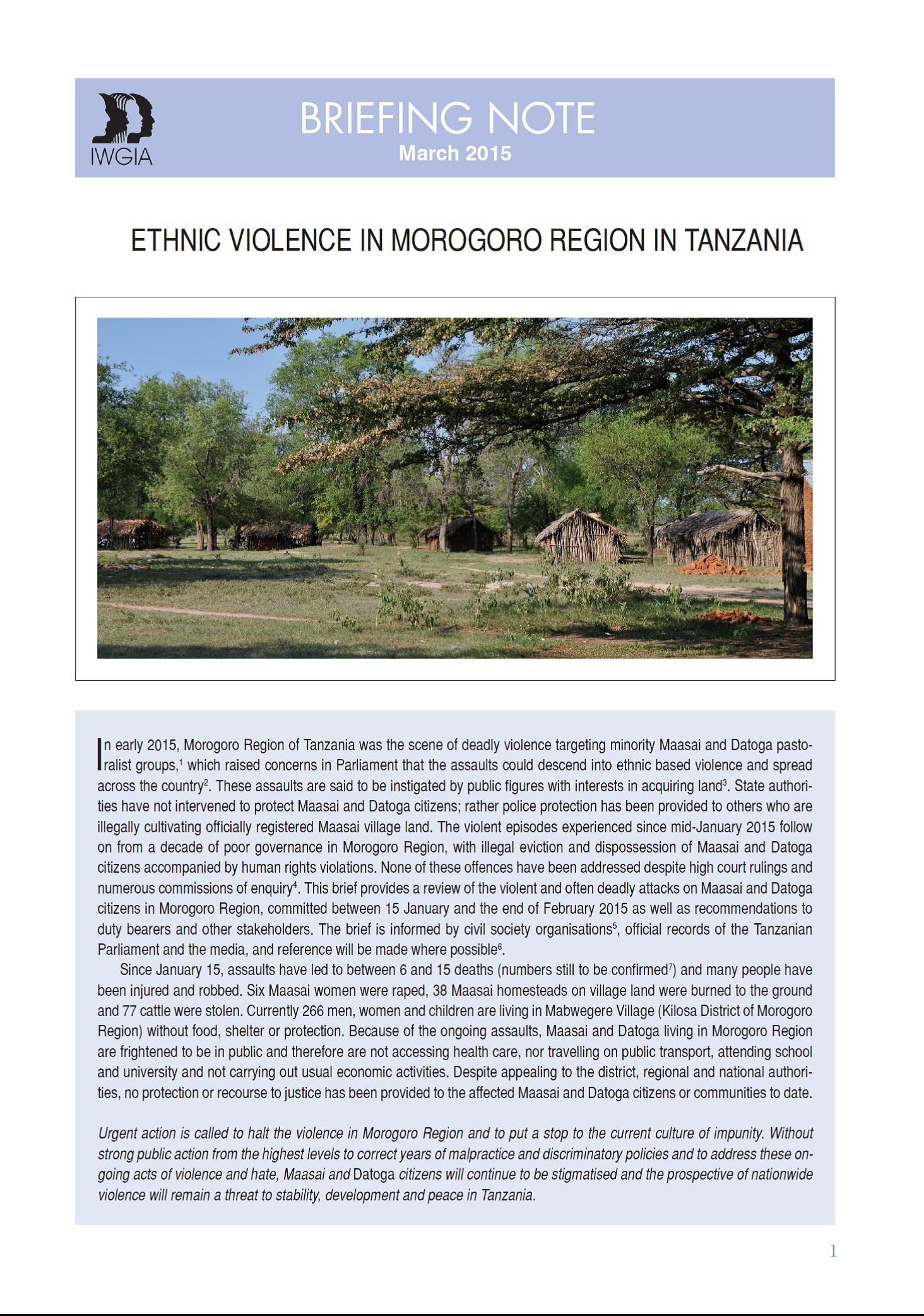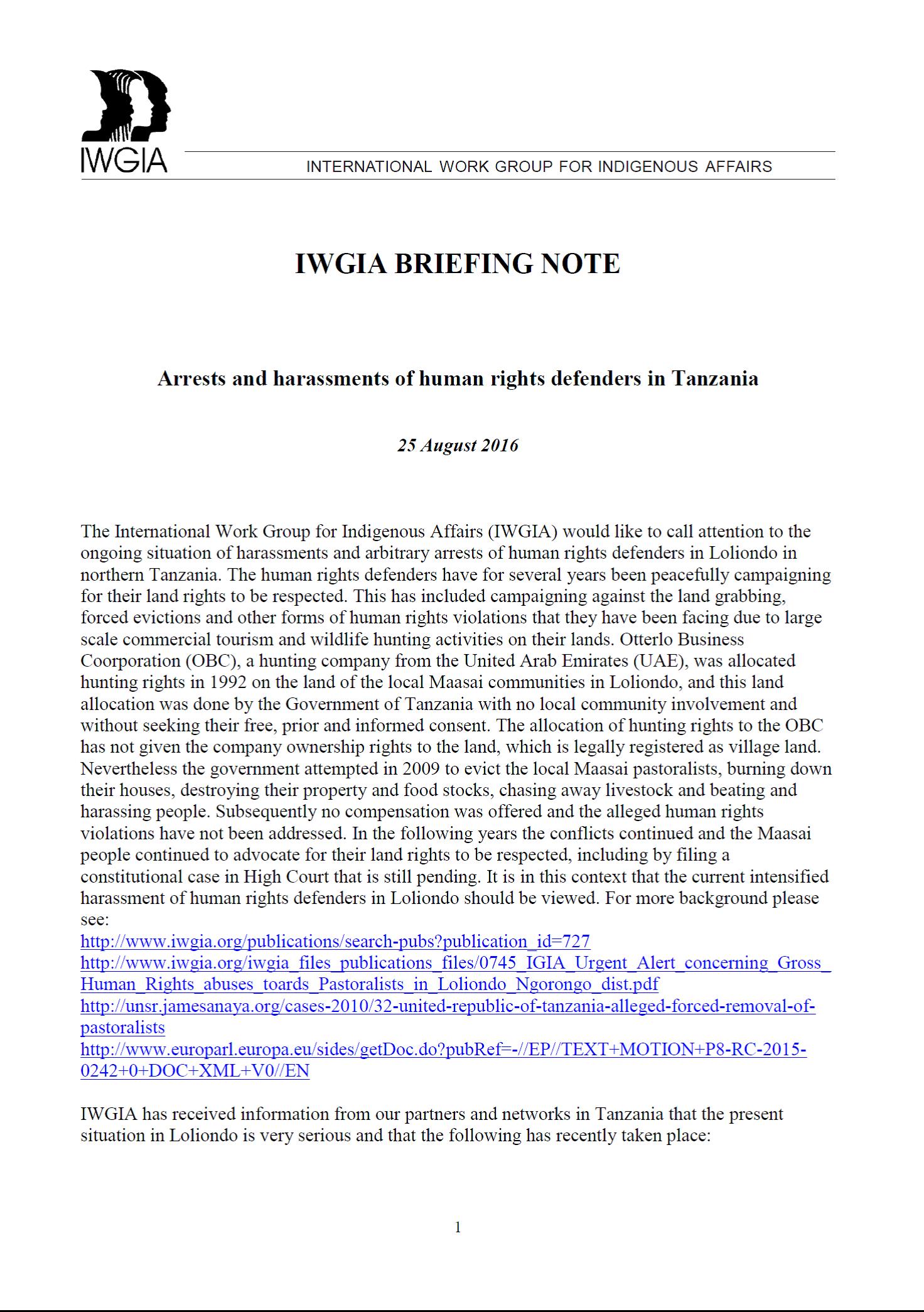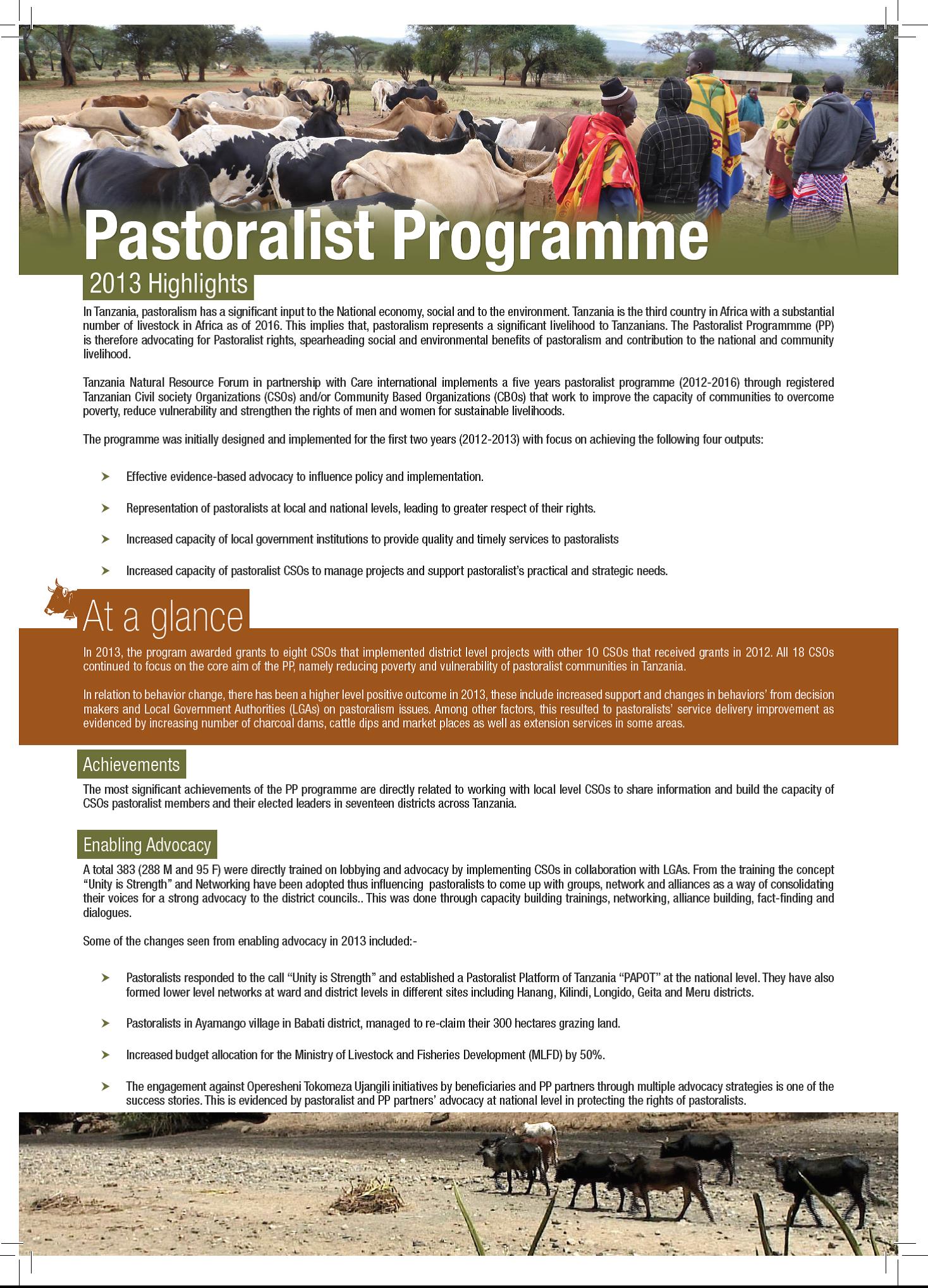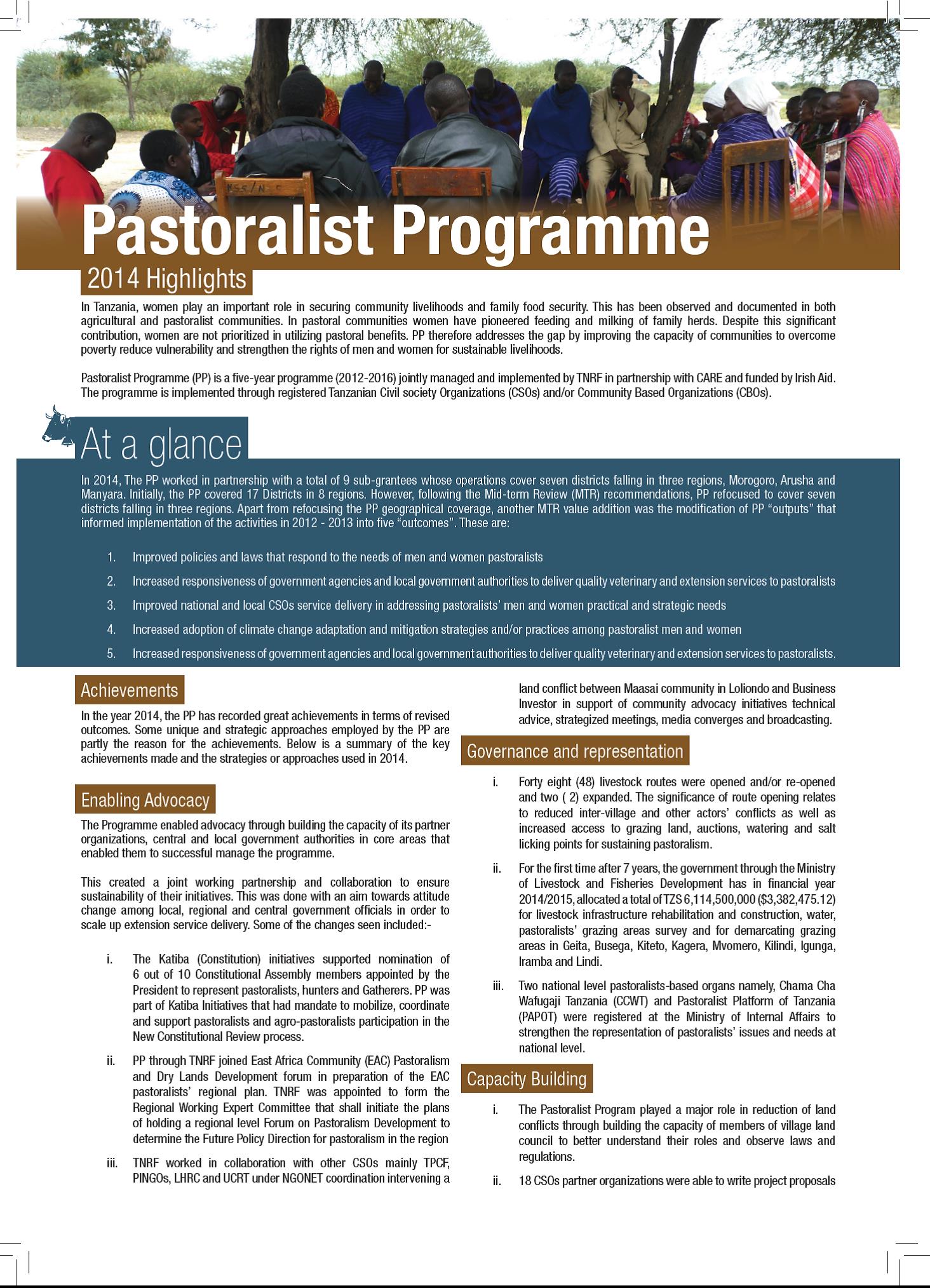IWGIA Urgent Alert
IWGIA has recently been informed by local partners in Tanzania that a government operation aimed at forcefully removing pastoralists from the Kilosa district in the Morogoro Region in southern Tanzania started on the 29.1.2009. The Tanzanian government wants to remove all pastoralists from Kilosa district and, according to some sources, the whole of Morogoro Region, and force them to other areas of Tanzania. Such areas have though, according to IWGIA local partners as yet not been specified, and the affected families do not know where to go to.

